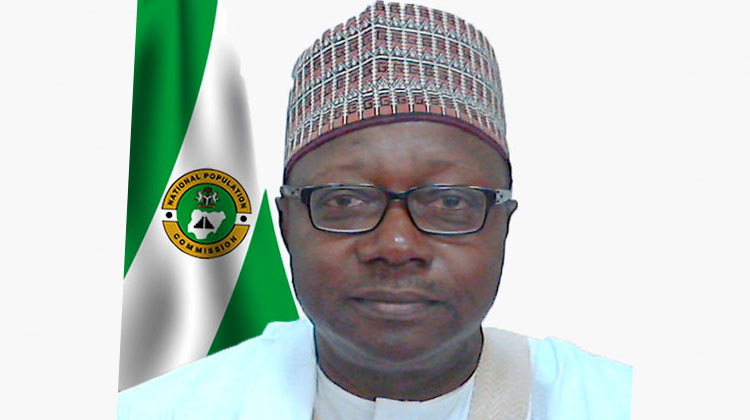
The Chairman of the commission, Nasir Kwarra, disclosed this at a press conference in Maiduguri, the state capital, on Monday.
He mentioned that the LGs – Chibok, Magumeri, Abadam, Mobar, Marte and Guzamala, were excluded after careful deliberation on security matters by the commission.
“They are considered flashpoints that require a lot of security logistics to convey our staff there, and we cannot risk the life of any of our staff.
“However, it would have an impact on the state but the excluded LGAs would take advantage of the neighbouring communities and LGAs, where the exercise is taking place, so that whatever result obtained there would also be applied to them,” he said
Kwarra, who was represented by the NPC Director in the state, Haruna Ibrahim, noted that the NDHS exercise would gather high-quality data on a wide range of vital indicators, including fertility rates, maternal and child health, childhood mortality, gender-related issues, nutrition and more.
“So, major stakeholders would use the data to make important decisions in addressing the unique needs of citizens, improve health outcomes, and reduce the burden of disease across the country,” he added.
He called on the media to use the five months to educate citizens on the importance of the exercise and clear cultural and religious misunderstandings about the programme.
Kwarra said he appreciated the support and cooperation from the public and the communities involved, as testified by NDHS Field workers across the state.
PUNCH Online reports that the commission launched the 2023-24 Nigeria Demographic Health Survey and unveiled the remodelled Akwa Ibom State NPC office building for the exercise.
Kwarra assured that the NPC would deliver a credible, reliable, and acceptable population census in the country.
He added that the commission would leave no stone unturned in providing the necessary facilities for a comfortable work environment for its personnel.





